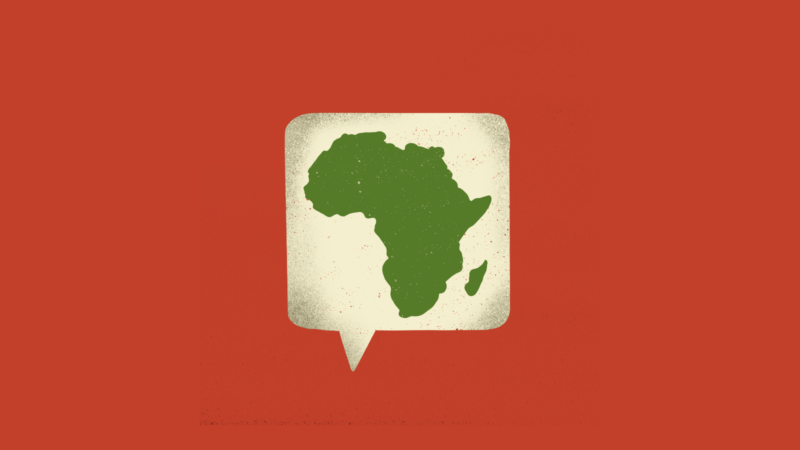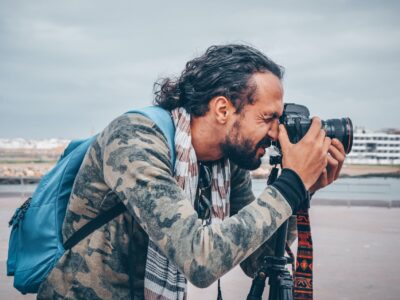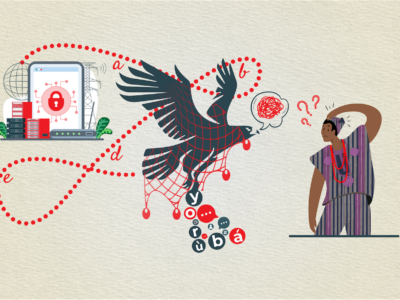
A rotating Twitter campaign from Rising Voices that highlights the work of digital activists of African languages
Rising Voices note: Our monthly newsletter provides a summary of our recent blog posts about all aspects of digital inclusion including access to and adoption of digital tools, as well as different ways and opportunities for communities to fully participate online. Read here for previous editions of this newsletter.
Hello readers, how are you doing this June?
We are excited to share with you that our rotating campaign on Twitter for African language digital activism is happening again starting this month! Whether you are interested in discovering how technology can help in language revitalization or are simply fascinated by learning about different languages/cultures, we believe that you will have fun following our guest hosts over on @DigiAfricanLang.
So, what’s the wait?
MORE FROM THE RISING VOICES BLOG
Interested in learning first hand about how the internet and technology play a role in the promotion and revitalization of indigenous, minority, endangered, or under-resourced languages? Rising Voices and partners are now bringing to you a new round of our rotating Twitter campaigns for 2023, featuring language digital activists around the world each week. Come follow us and hear what they have to share!
@ActLenguas (Latin America)
- Selene Galindo/Masa'n [es]: a content creator of O'dam, who seeks to promote dignified representations of her people and her community in “public spaces” through her work
- Jhonnatan Rangel [es]: a linguist and researcher of the Numde oode language (Ayapaneco Zoque), which is at the brink of extinction
- Esme RS [es]: both a learner and a teacher of Xjuani, or Ixcateco, a language spoken in Oaxaca, Mexico that is at very high risk of disappearing.
@DigiAfricanLang (Africa)
- Siki Dlanga on working to promote works of South Africa-based languages activists around indigenous languages
Along this line, we’d love to take you to Africa, getting to know a language digital activist, who’s committed to promote indigenous languages of Ghana through Wikimedia projects, as well as challenges Togolese are faced with in promoting their national languages. Meanwhile, on a different continent, Occitan speakers are leveraging the power of digital tools — including a private TV initiative called ÒCtele — to bring their language back to the public space.
Meanwhile, after attending a media literacy workshop, youths of Indigenous and Afro-Bolivian descent from the Gran Chaco region shared their findings. While some felt that the media has unfairly labeled them as “lazy,” without taking into consideration their traditional values of conserving the nature that sustain their community, some felt that the media tends to cherry pick when discussing development projects taking place around their community; some called upon the mainstream media to pay due diligence to their fact-checking, so that the Indigenous people can really be part of their own stories.
CALLS FOR PARTICIPATION
The Fishbowl Challenge is now taking applications from youth around the world, from all educational backgrounds, aged 18–30, to join their 2024 cohort. If you are looking for a chance to join young entrepreneurs like yourself in driving tech-powered social changes to address a pressing issue that you care about, this could be it (details here). Application due: July 1, 2023 at 11:59pm (PST)
AWARDS
Are you a journalist based in the region of Western Balkans and Türkiye? The 2023 EU Award for Investigative Journalism is open now and you are invited to submit your stories that contribute to freedom of expression, the rule of law, and transparency — including what’s happening in the digital space — which would have remained unknown to the public. Submission due: June 20, 2023 at midnight (CET)
MORE TO READ, WATCH and LISTEN TO
- 3 core principles for a feminist global digital compact via ICTworks
- VCA Bolivia – Gran Chaco region as presented by Voices For Just Climate Action via YouTube
- A number system invented by Inuit schoolchildren will make its Silicon Valley debut via Scientific American
Subscribe to the Rising Voices Newsletter
Support our work
Since Rising Voices launched in 2007, we’ve supported nearly 100 underrepresented communities through training, mentoring, microgrants and connections with peer networks. Our support has helped these groups develop bottom-up approaches to using technology and the internet to meet their needs and enhance their lives.
Please consider making a donation to help us continue this work.



